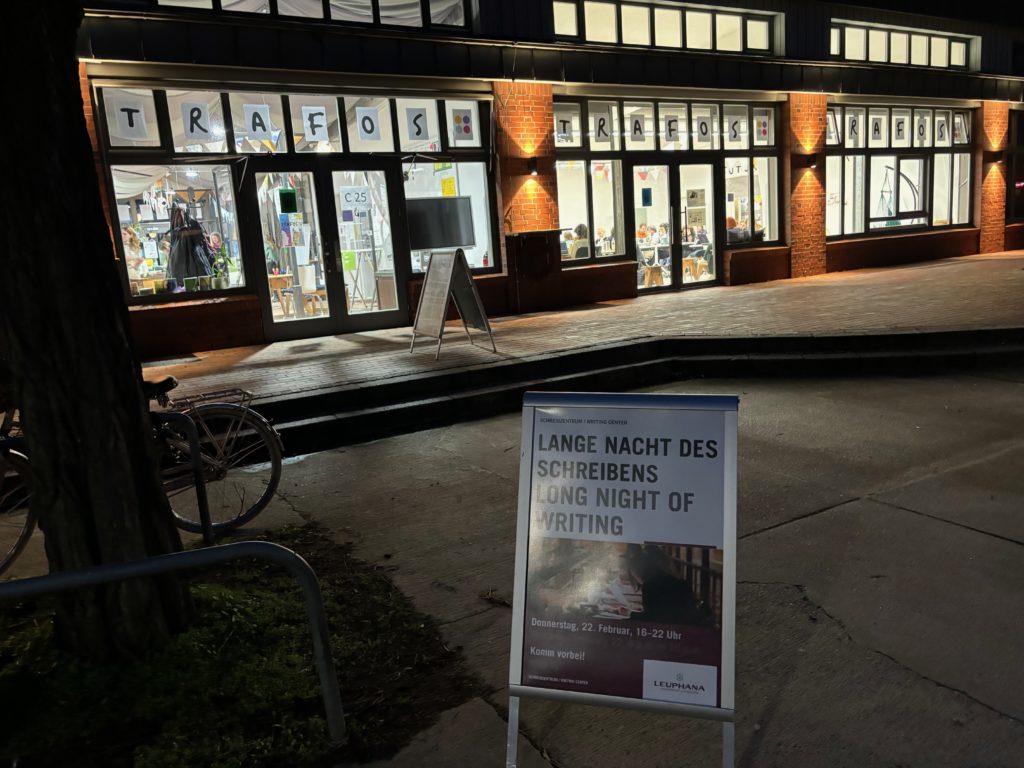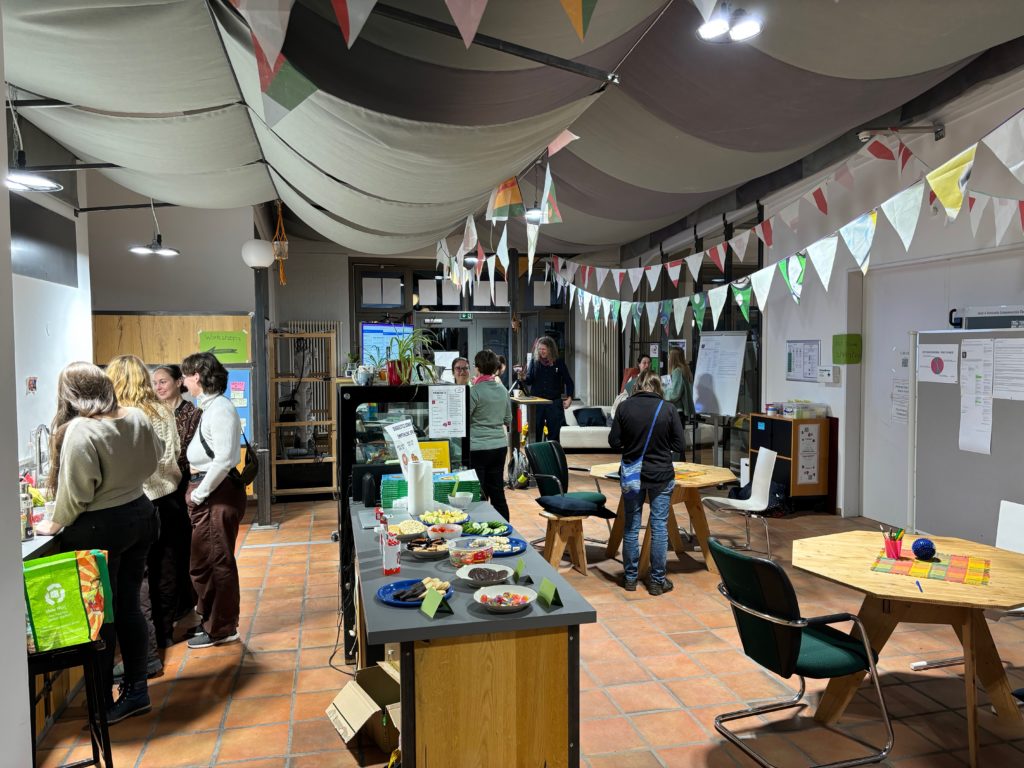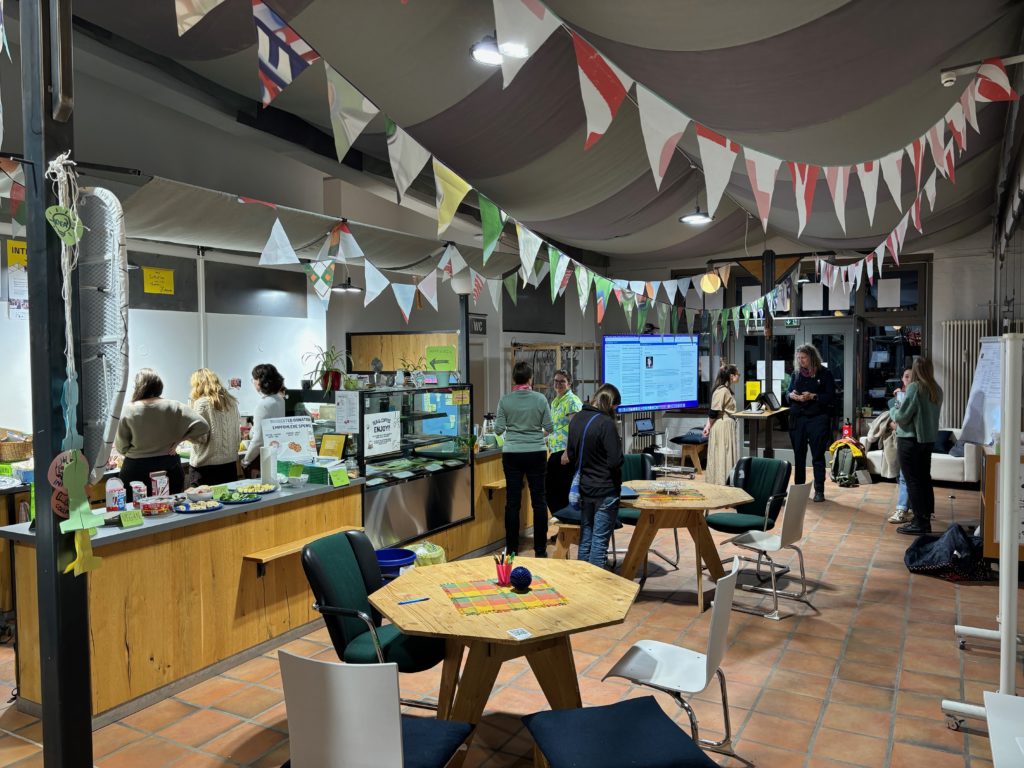Ein Gastbeitrag vom Leuphana Schreibzentum
Kurt* arrived at the Long Night of Writing with one goal and three questions in mind. His goal: finish the first draft of his research paper. His three questions were: how to create a table of contents in Microsoft Word, when to paraphrase a source, and when to use the active voice in his methods section. Over the next four hours, Kurt would achieve his goal and receive answers on all three questions.

Kurt stepped into the TRAFOS for the Long Night of Writing just in time to jump into the workshop on Microsoft Word. In those twenty minutes, Kurt discovered the button for the table of contents as well as the automatic connection between Word and Zotero.
After the workshop, Kurt wandered out into the lobby where he munched on cookies and fell into conversation with one of the Schreibzentrum / Writing Center tutors. “How,” Kurt asked, “can I use the information from my sources without repeating exactly what they say or plagiarizing their work?” The tutor took the next ten minutes to discuss plagiarism and explain how Kurt could re-formulate sentences so that Kurt was paraphrasing rather than quoting. They even tried out a few examples together to make sure Kurt had a good grasp of the concept.

After his conversation with the tutor, Kurt joined the fifty other students in the TRAFOS writing room. Over the next three structured writing sessions, Kurt’s fingers sped over his keys. Evening light was pouring in the windows and the small cactus on the table made Kurt think of a rabbit every time he glanced up. In his paper, Kurt automatically generated new headings with the MS Word options and built his body paragraphs. However, at 8 PM, Kurt’s progress screeched to a halt. He had just started his methods section when he discovered a new problem. He did not know whether he could use “I” in academic writing, but he was tired of using the passive voice.
Once again, Kurt returned to the tutoring room to refill his tea mug and chat about his new question with another tutor. “Can I say ‘I’ in an essay,” Kurt asked. In his secondary school, Kurt had been taught never to use ‘I’ – but now, as a more accomplished writer, Kurt wanted to be more daring. He wanted to break the rules.
His hands warmed by a second mug of tea, Kurt listened as the tutor explained how experienced writers can use the first person, even in academic texts. “Yes,” said the tutor, “you might avoid using ‘I’ for a research paper, but for an essay, you can use the first person. Essays are supposed to be more personal. In an essay, you can openly acknowledge your position and the impact you’re trying to have on your reader.” Their conversation and the writing event drew to a close, and students began to slide computers into bags and wrap up charging cables. When Kurt left the Long Night of Writing at 9 PM, he had completed his first draft and was ready to start editing. The environment dedicated to writing inspired Kurt to stay focused, and his conversations with the Schreibzentrum / Writing Center staff cleared up his confusion. Stepping out into the cold night, Kurt made a calendar reminder on his phone for the following week’s Writing Marathon.

*We are using a pseudonym to protect the privacy of all LNDS attendees.
von Anne Trapp





